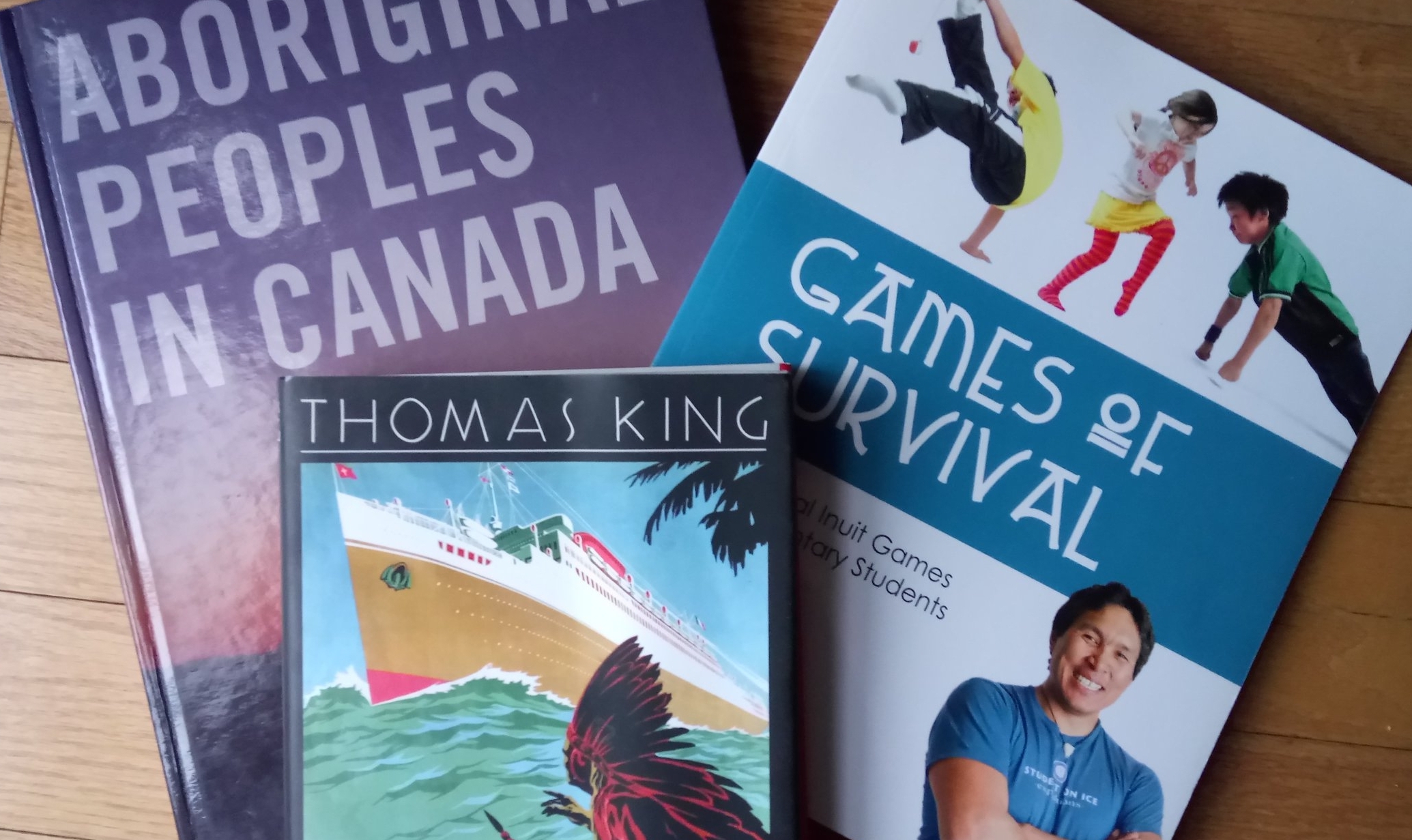This is part three in a series on land acknowledgement in schools. Previous posts in this series include: How Can I Make the Land Acknowledgement Meaningful?, and The Land Acknowledgement as an Invitation to Inquiry.
I am excited to share some of my learning with you about the land acknowlegement, which has been on my mind since I wrote my post addressing the question "How can I make the Land Acknowledgement meaningful?"
Last week, I attended the launch of the second edition of Natural Curiosity, which was opened by Michael White, who is Bear Clan of the Anishnaabek Nation. Michael has given me permission to reprint his words that he offered while acknowledging the land that night:
In terms of the land acknowledgement you might be accustomed to, the ones that are written and recited before events, they are a beginning but they don't connect with the speakers' relationship to the land. People have become indifferent to prepared statements or written ones because they don't really have a connection to the speaker, its something that people (in the audience) just wait to be concluded.
When I give words and acknowledge my relationship to this land, I'm making connections to the ancestors that have led to the life that I have. I give thanks for my ancestors, the ones that have started off here that moved on to Manitoulin Island, that traveled the great waters of this territory, for all the many generations that have been connected here, for those that in more contemporary times chose this place to live. Those ones that have passed on that have become the earth that helps to nourish the food and the animals, and that has become part of the air. And when we are talking about the land, we are very much talking about the ancestors that have come before us, physically becoming the lands that we are in.
You might be wondering, especially if you are not familiar with thinking about your own relationship to land, about how this might apply to you.
What I have learned from my own relationship to Indigenous folks and from being in Indigenous spaces is that we all have a relationship to the land, and that learning more and sharing what that means to me is an important way to identify myself, honour those that have come before me, and tell others something about who I am and what histories and perspectives inform me.
Michael shares that he encourages folks "to speak of their personal story of acknowledging the lands." Based on what Michael has shared, if I were called on to give a land acknowledgement, I would begin with my name, share where my ancestors are from, and how and when they came to Toronto. It might sound like "My name is Angela Giuseppina Nardozi, and both sides of my family originate in Italy. One generation of my ancestors were here in Toronto before me, on my mother's side. On my father's side, I am the first generation to be born on this territory."
I would then proceed to name and honour the Nations who were the original caretakers of this land. I also very much appreciate the way that Michael speaks about these Nations:
In terms of those ancestors who have come before, we acknowledge the Huron, the Petun, the Haudenosaunee, and the Anishinaabe, and the Mississauga peoples, and the nations beyond number whose names we no longer remember because of colonialism. As we move forward, I hope that every time we get together we acknowledge all those that have come before us because they are our ancestors.
Taken together, Michael's words give us a profound insight into his way of knowing and seeing the land that we call Toronto. They are a reminder about the cycles of life, how the land connects us to not just our human ancestors, but to all of our non-human relatives. For me, they represent a profoundly different understanding of land and the natural world than I am accustomed to.
Questions for consideration:
What if the land acknowledgement was an invitation for us, our students, and school to learn more about our own relationship with land?
Who are our families? Who lives in our community? How did we get here? Who was here before us?
What if we as educators were to see the land acknowledgement as an invitation for our school community to learn more about the land the school is located on?
What specific Nations lived on this land? What are their histories? How far can we trace the history back? What waterways are near our school? What animals and plants do we observe from our school yard? What animals and plants used to live in this area?
